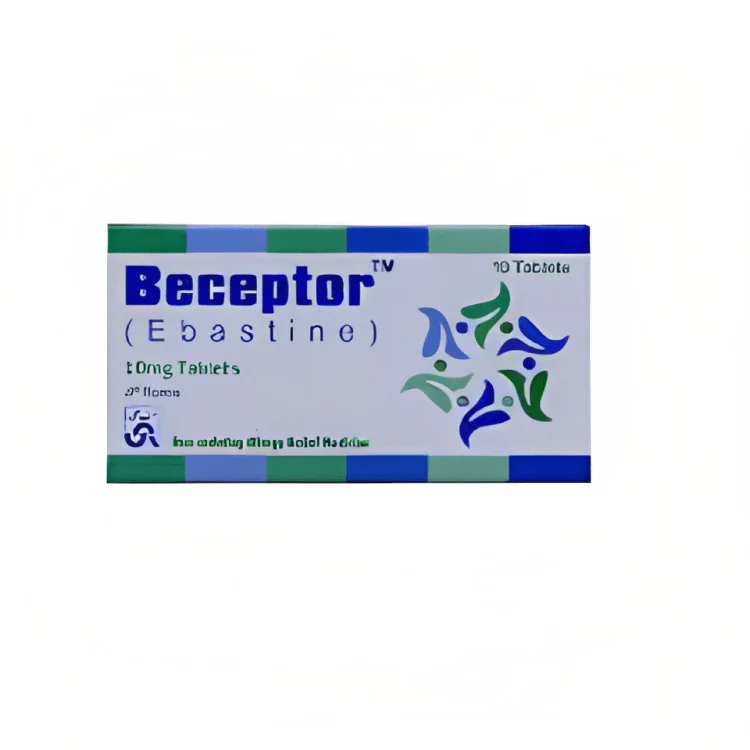Your cart is currently empty!
BECEPTOR TAB
₨ 16
Ebastine is a second-generation H1 receptor antagonist primarily used for the treatment of allergic rhinitis and chronic idiopathic urticaria.
2 in stock
Description
Ebastine: A Brief OverviewEbastine is a second-generation H1 receptor antagonist primarily used for the treatment of allergic rhinitis and chronic idiopathic urticaria1. Here are some key points about this medication:
Mechanism of Action:
Ebastine works by blocking histamine receptors (H1 receptors) in peripheral tissues. This action helps alleviate symptoms associated with allergies, such as rashes, swelling, and itching.
Unlike some antihistamines, ebastine does not significantly penetrate the blood-brain barrier, resulting in a low incidence of central side effects (such as sedation or drowsiness).
Safety Profile:
Ebastine has demonstrated overall safety and tolerability.
It does not impair cognitive or psychomotor function and does not cause sedation worse than placebo.
Cardiac safety studies have shown no QT prolongation.
Pharmacokinetics:
After oral administration, ebastine undergoes extensive first-pass metabolism by hepatic cytochrome P450 3A4, converting it into its active metabolite, carebastine.
Carebastine is responsible for the therapeutic effects of ebastine.
Dosage and Formulations:
Ebastine is available in tablet form (10 mg and 20 mg), fast-dissolving tablets, and pediatric syrup.
The recommended daily dose varies based on disease severity (usually 10 mg or 20 mg).
Brand Names:
Ebastine is marketed under various brand names worldwide, including Ebast, Ebatin, Kestine, and others.
In summary, ebastine combines effective peripheral H1 receptor blockade with minimal central side effects, making it a valuable option for managing allergic conditions. Always consult your healthcare provider for personalized advice and dosing recommendations.



